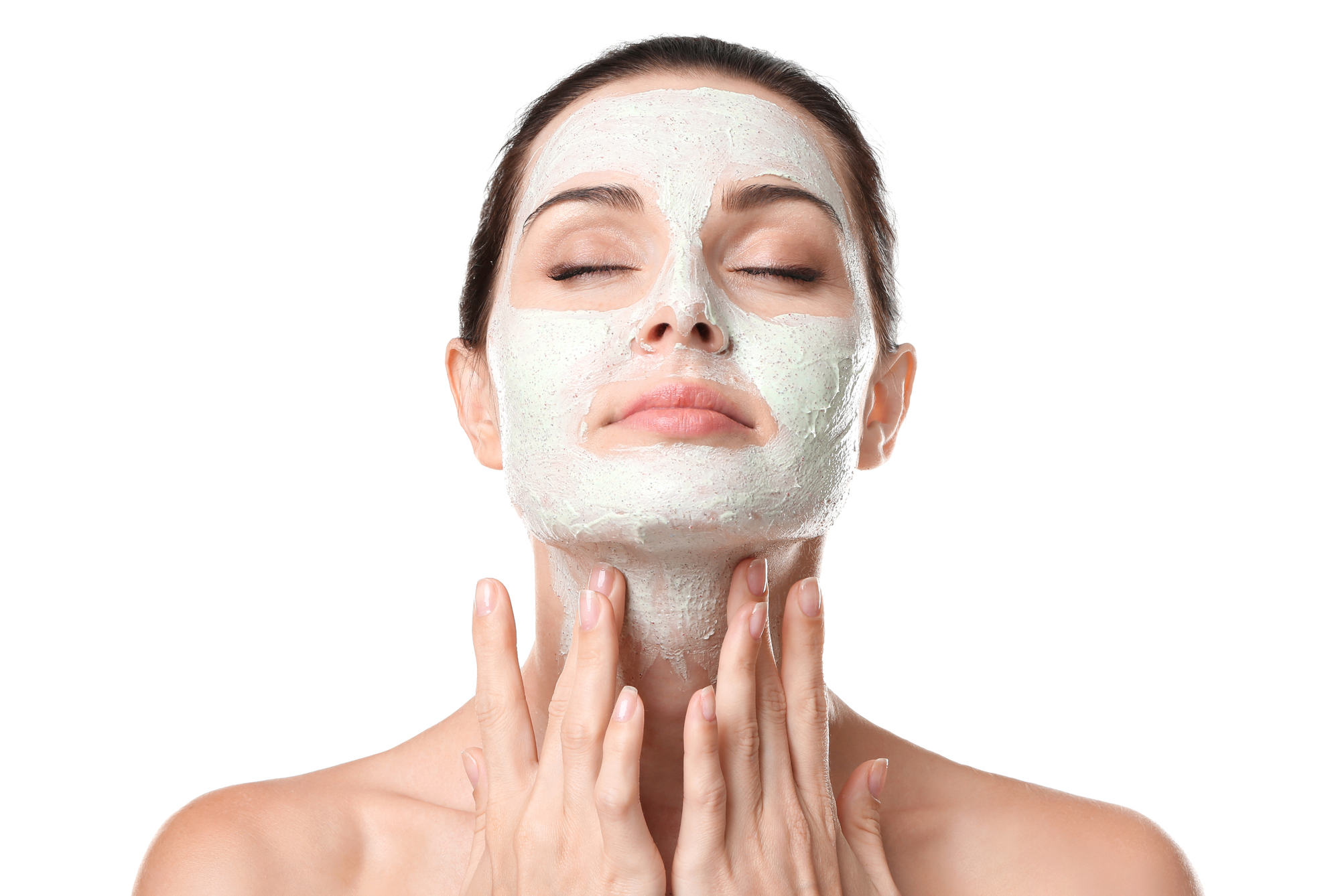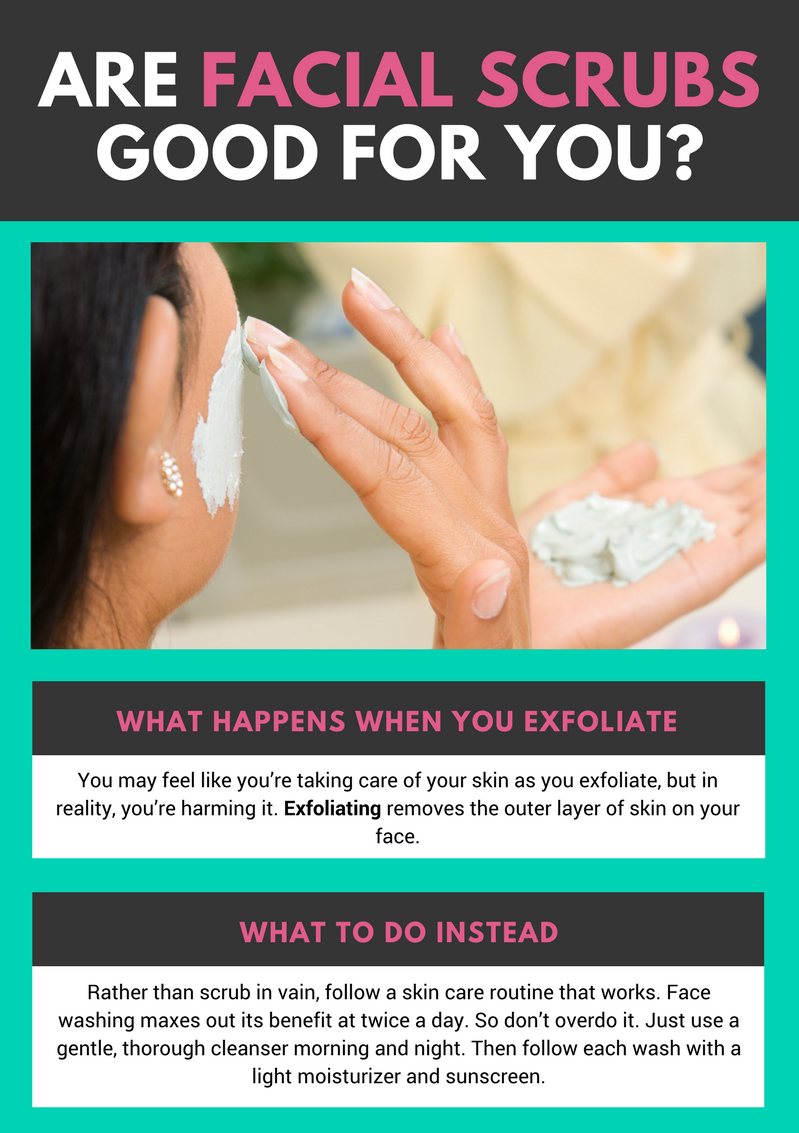Want to revive dull skin, remove impurities, and minimize your pores – all with one simple product? Of course you do! But contrary to what advertising claims, those aren’t the real effects of exfoliators and scrubs.
Exfoliators in almost every product line boast of how they banish dead skin, dirt, oil, and impurities, but they fail to mention that scrubs harm your skin more than they help.
Why Do We Exfoliate?
If exfoliating isn’t beneficial, why do we do it? Well, some people feel compelled to. They love that clean, fresh sensation they get after a good scrub. People with naturally oily skin really love it. For once, they don’t have a greasy face and their skin feels fresh. But it’s not.
What Really Happens When You Use An Exfoliant
You may feel like you’re taking care of your skin as you exfoliate, but in reality, you’re harming it. Exfoliating removes the outer layer of skin on your face. Essentially, you’re stripping your skin of the much-needed barrier it creates between your glands and the environment.
Your skin feels oil-free because it is — temporarily. But when you zap the oil from your face, your glands produce more oil to compensate for the overly dry skin. So regular exfoliation (daily or weekly) generates a seesaw effect. The skin fluctuates between too dry and too oily, and gets stuck in a cycle of imbalance.
Balancing Your Skin
“Balance” sounds a little abstract in terms of skin care, but it’s simple. You want a healthy skin barrier that produces a moderate level of oil.
Most major facial concerns stem from imbalance. Skin that’s too oily is prone to acne while skin that’s too dry often results in eczema. When the skin’s on a roller coaster of harsh products, you can start to see both acne and eczema, and maybe even rashes. As we treat each of these issues, the goal is the same: balance the skin.
Using an Exfoliator
As you look for the best facial exfoliator, consider this advice: don’t buy one. The recommended use of most scrubs is 2-3 times per week for a “healthy glow”. But a nightly or weekly exfoliant has no real benefit for your skin. (In fact, the products containing micro-beads are in the process of being removed from the market altogether for environmental reasons.)
If you want to know how to exfoliate your face, visit your dermatologist to discuss controlled options. A dermatologist can recommend a chemical and mechanical exfoliation treatment that best meets the needs of your skin. How often should you exfoliate your face? Treatments will likely be scheduled once a month at most.
What to Do Instead
Rather than scrub in vain, follow a skin care routine that works. Face washing maxes out its benefit at twice a day. So don’t overdo it. Just use a gentle, thorough cleanser like CeraVe Hydrating Cleanser morning and night. Then follow each wash with a light moisturizer and sunscreen. We recommend CeraVe’s line of moisturizers or Neutrogena Oil-Free Facial Moisturizer for men and women of all skin types. Plus, the Neutrogena moisturizer offers various SPF levels so you can choose the right strength.
If you’re facing a specific problem like acne or blackheads, use a proven treatment to improve your skin. If you’re dealing with dermatitis, resist the urge to scrub that flaky skin away. That’s probably the worst thing you can do. Instead, visit your dermatologist so they can figure out the cause and treat the issue.
We’ve been conditioned by advertising and product lines to aim for that dry, clean feeling. Really, we need to strive for balanced, consistent skin care that leads to balanced and consistent skin.

Dr. Christopher Fuller is a board-certified dermatologist in Keller and Roanoke, TX. After three years of general practice with the Marines, Dr. Fuller found himself drawn to the highly specialized field of dermatology. He pursued a residency in dermatology and was recognized as Chief Resident during his final year of training. A member of the American Academy of Dermatology, Dr. Fuller is skilled in practicing medical, surgical, pediatric, and cosmetic dermatology.
Learn more about Dr. Fuller.


